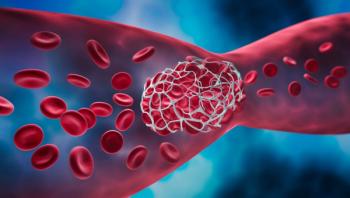
- MHE November 2023
- Volume 33
- Issue 11
Hemostatic Rebalancing Agents in Hemophilia Care
Expensive gene therapy has grabbed the headlines, but three promising drugs that work in the coagulation pathway are in late-stage development.
The current landscape in hemophilia treatment looks quite different than it did decades ago when plasma-derived clotting factor replacement therapy was the standard of care. Recent advances have introduced extended half-life products, including the recently FDA-approved Altuviiio (antihemophilic factor (recombinant), Fc-VWF-XTEN fusion protein-ehtl), a von Willebrand factor-independent recombinant factor VIII replacement.
The armamentarium now also includes two gene therapies, one-time treatments designed to induce production of the missing clotting factor. The FDA has approved Roctavian (valoctocogene roxaparvovec) for hemophilia A and Hemgenix (etranacogene dezaparvovec) for hemophilia B.
Less heralded among the advances are the hemostatic rebalancing agents. They work directly in the coagulation pathway and are intended to be used in people with hemophilia A or B with or without inhibitors, which are antibodies to clotting factor treatment. Three hemostatic rebalancing agents are in the late stages of development.
Fitusiran
Fitusiran is an investigational RNA interference agent that increases the production of thrombin, which helps blood to clot by reducing the synthesis of antithrombin, a protein that inhibits blood coagulation. Fitusiran is being developed by Sanofi Pharmaceuticals for prophylaxis treatment in both hemophilia A and B.
Results of trials that included adolescents and adult trials showed a 90% reduction in annualized bleeding rate (ABR) in participants receiving fitusiran compared with those in the standard treatment group in patients without inhibitors. In the arm of the study with people with inhibitors, fitusiran reduced ABR by 91% compared with standard on demand treatment. There were no thrombotic events in any study participants. Sanofi plans to apply for FDA approval in 2024.
Marstacimab
Pfizer is developing marstacimab, a monoclonal antibody that targets tissue factor pathway inhibitor (TFPI), a protein that inhibits coagulation in the early phases of the clotting pathway. In 2019, it received FDA fast-track designation for prophylaxis of bleeding episodes in patients with hemophilia A or B with inhibitors.
Earlier this year, Pfizer announced positive results for the phase 3 BASIS trial evaluating the effect of marstacimab on ABR in adults and adolescents with severe hemophilia A or moderately severe to severe hemophilia B without inhibitors compared with factor replacement therapy or bypass therapy. The trial met its primary end point in both cohorts, demonstrating statistically significant superiority of marstacimab in ABR. Marstacimab was administered subcutaneously as a loading dose, then once weekly.
Concizumab
Concizumab is also a subcutaneously administered TFPI-targeting recombinant antibody under development for potential use as prophylactic therapy in individuals with hemophilia A or B with or without inhibitors. However, the pharmaceutical company Novo Nordisk has had to navigate obstacles in moving concizumab through
the FDA approval process.
Three years ago, the FDA imposed a trial pause of the investigational treatment over reports of thrombotic events in three patients. The company worked with the regulatory agency to resolve issues and, in July 2022, announced positive results from the EXPLORER 7 phase 3 trial.
Although concizumab has been approved in Canada for the prophylactic treatment of adults and adolescents with hemophilia B and inhibitors, in the United States Novo Nordisk received a complete response letter from the FDA requesting further information regarding dosing, monitoring, and proper administration
of concizumab.
Rosanna Sutherby, Pharm.D., is an independent medical writer and community pharmacist in High Point, North Carolina.
Articles in this issue
about 2 years ago
Reducing Low-Value Care in Oncologyabout 2 years ago
What's New in Prostate Cancer TreatmentNewsletter
Get the latest industry news, event updates, and more from Managed healthcare Executive.























